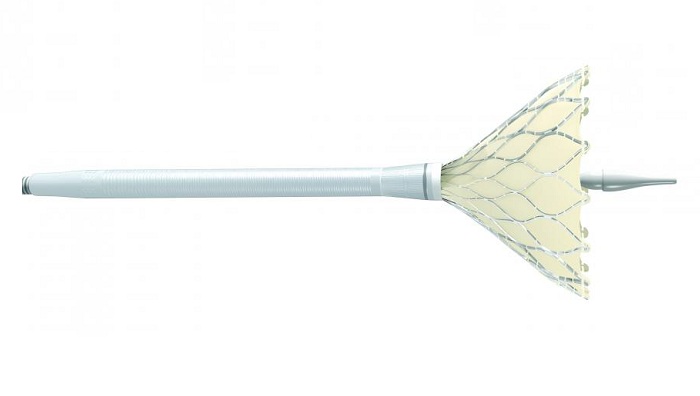Medtronic plc unveiled outcomes from the CoreValve U.S. Pivotal Extreme Risk Study and the real-world NOTION trial (Nordic Aortic Valve Intervention Trial), both of which examined patients with the CoreValve(TM) transcatheter aortic valve replacement (TAVR) system at five years post-implant.
Presented at the American College of Cardiology (ACC) 67th Annual Scientific Session, results from the studies demonstrated that patients implanted with the CoreValve TAVR system showed strong hemodynamic performance (blood flow) and improved quality of life out to five years.
The physician-initiated NOTION trial studied an all-comers population of 280 patients at least 70 years old who were randomized to surgical (SAVR) or transcatheter aortic valve replacement using the CoreValve System. Results at five-year follow-up showed similar rates of all-cause mortality (27.7 percent for TAVR versus 27.7 percent for SAVR) and superior hemodynamic performance for TAVR (mean aortic valve gradient of 8.22 mm Hg) compared to surgery (13.71 mm Hg).
“These five-year outcomes of the NOTION data add to the mounting body of longer-term evidence supporting the effectiveness of TAVR, said H. Gustav Thyregod, M.D., Ph.D., cardiac surgeon in the department of cardiac surgery at The Heart Center, Rigshospitalet, in Copenhagen, Denmark, and presenter of the NOTION data at the meeting. “We’re pleased to see the strong hemodynamic performance maintained over time without any indication of valve deterioration.”
Also presented at the meeting were the final five-year results from the CoreValve U.S. Pivotal Extreme Risk Study, which enrolled the first US IDE cohort of patients ever to be treated with the self-expanding CoreValve TAVR system.
Results from the study continued to show positive outcomes at five years for the surviving patients – all of whom were deemed to be facing considerable harm or mortality with a surgical valve replacement. Patients implanted with the CoreValve system maintained a notable improvement in quality of life (mean change from baseline in KCCQ of > 20 points at 5 years) and sustained low mean gradients (7.63 mm Hg).
“It is remarkable to see patients, whose only aortic valve replacement option was to undergo a TAVR procedure, continue to live an improved quality of life five years later,” said Pieter Kappetein, M.D., vice president and chief medical officer of the Heart Valve Therapies business, which is part of the Cardiac and Vascular Group at Medtronic. “While the TAVR therapy continues to show promise in less sick patients, it’s important to acknowledge that the early pioneers of this therapy were those who truly had very limited treatment options. It’s satisfying to see that many of these early patients continue to do well with the self-expanding TAVR platform, especially as the therapy expands to lower-risk patients who are expected to live longer.”
Following the launch of the self-expanding CoreValve System in the U. S. in 2014, the CoreValve Evolut R System became the first-and-only recapturable and repositionable TAVR device approved in the U.S. for severe aortic stenosis patients at a high or extreme risk for surgery in 2015. The Evolut R system received CE (Conformité Européene) Mark for high- and extreme-risk severe aortic stenosis patients in 2015, and for intermediate-risk patients in 2016. In 2017, the third-generation Evolut PRO TAVR system was approved in the U.S. and Europe for extreme-, high- and intermediate-risk patients.
In collaboration with leading clinicians, researchers and scientists worldwide, Medtronic offers the broadest range of innovative medical technology for the interventional and surgical treatment of cardiovascular disease and cardiac arrhythmias. The company strives to offer products and services that deliver clinical and economic value to healthcare consumers and providers around the world.


















